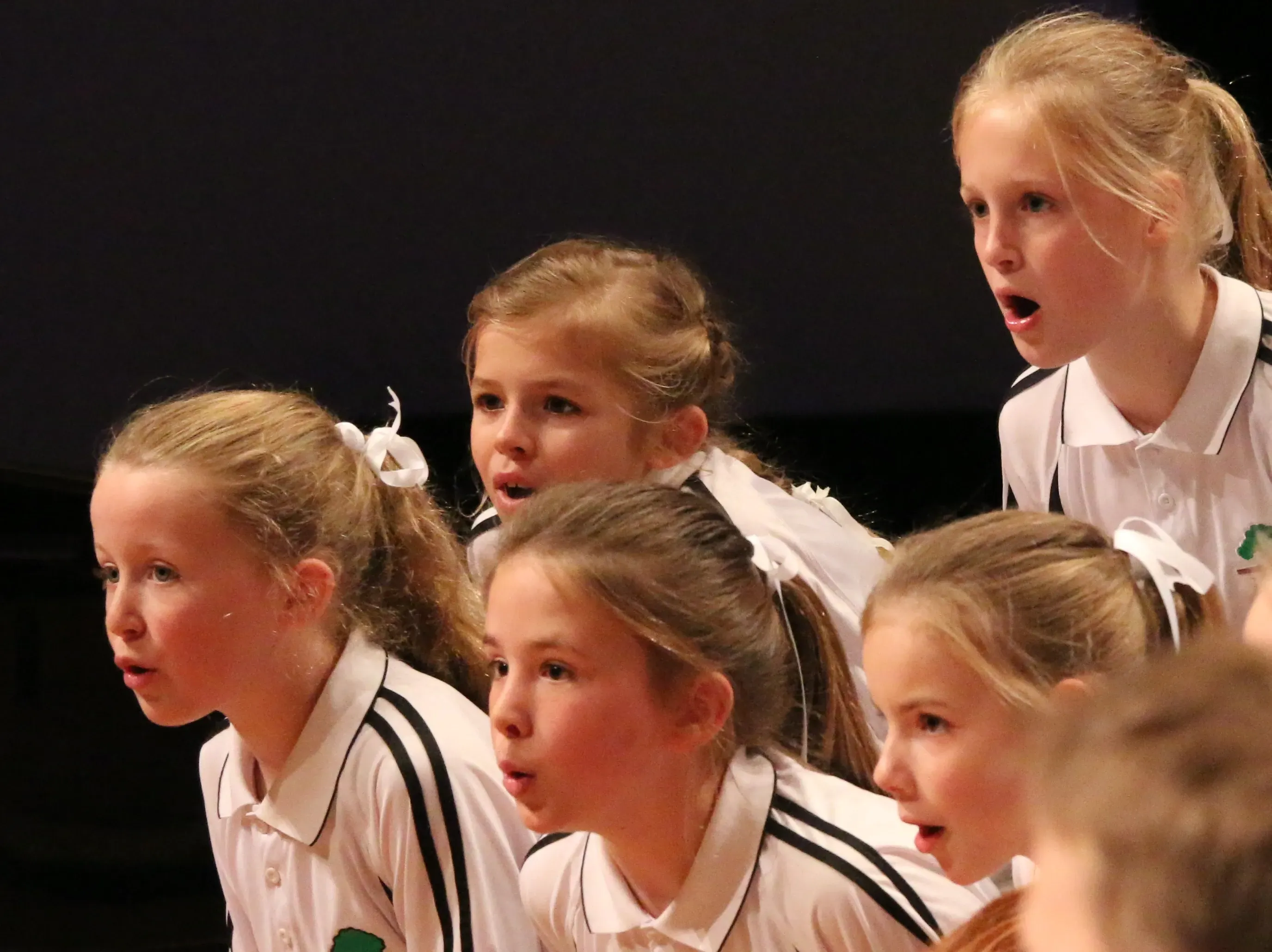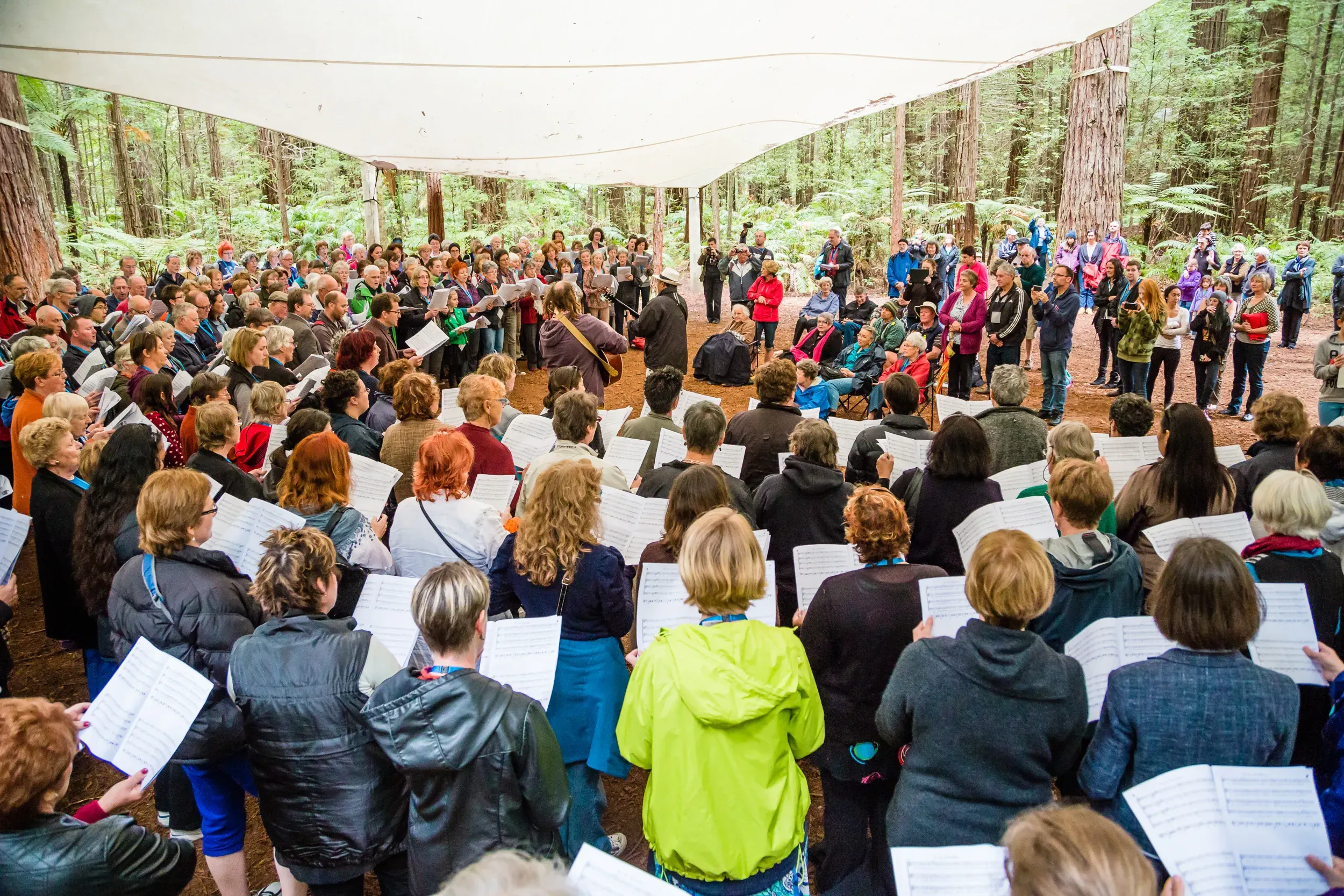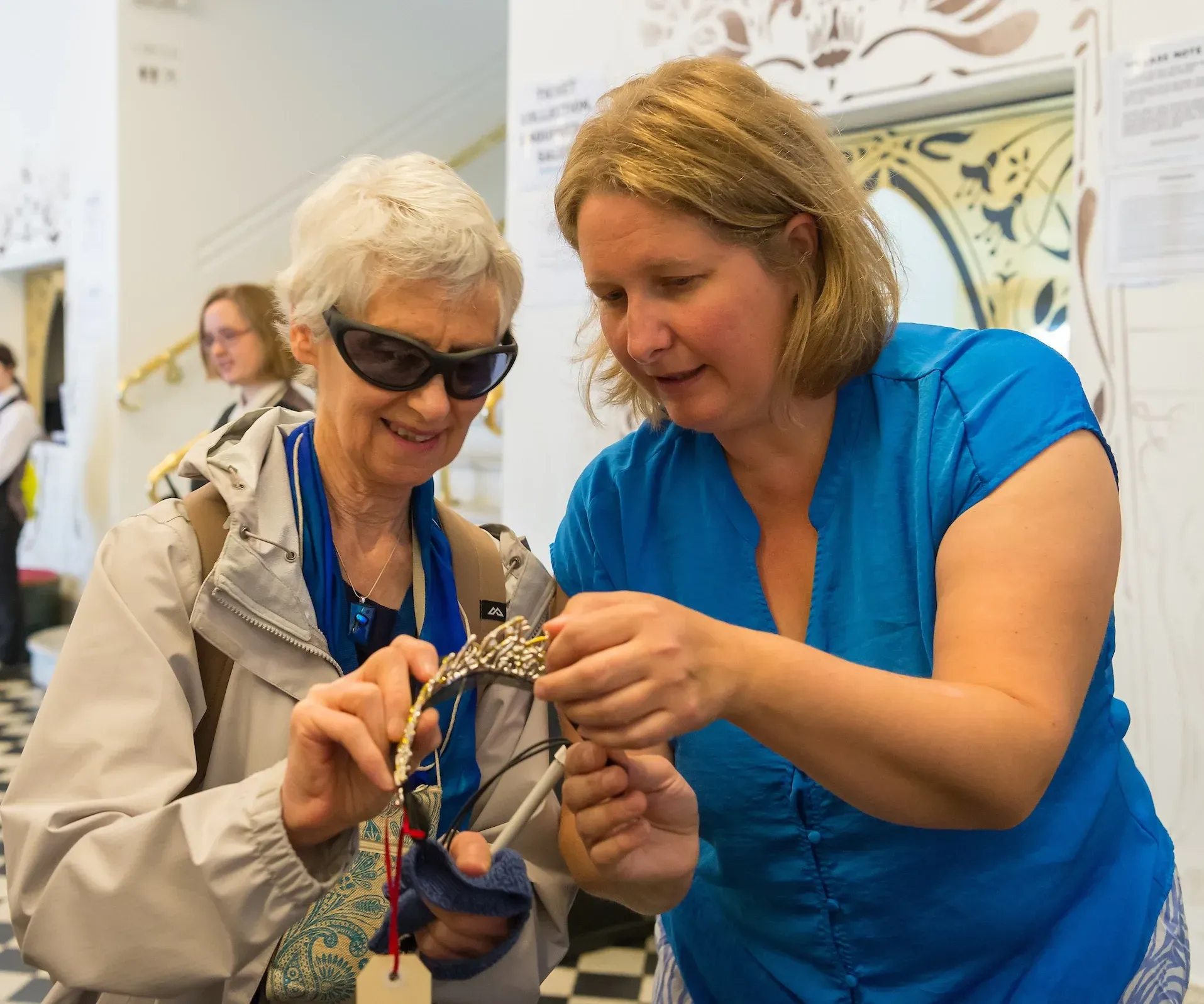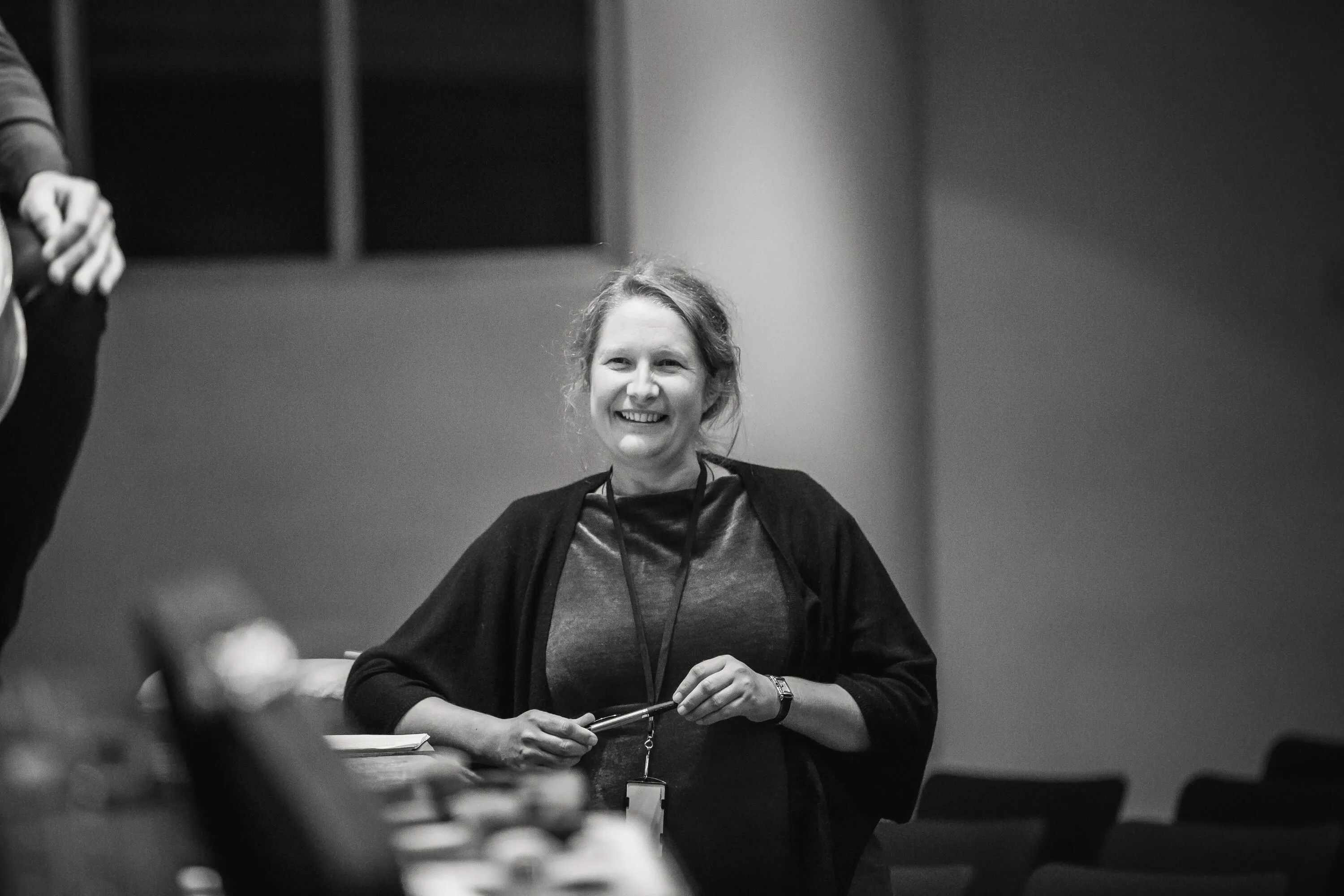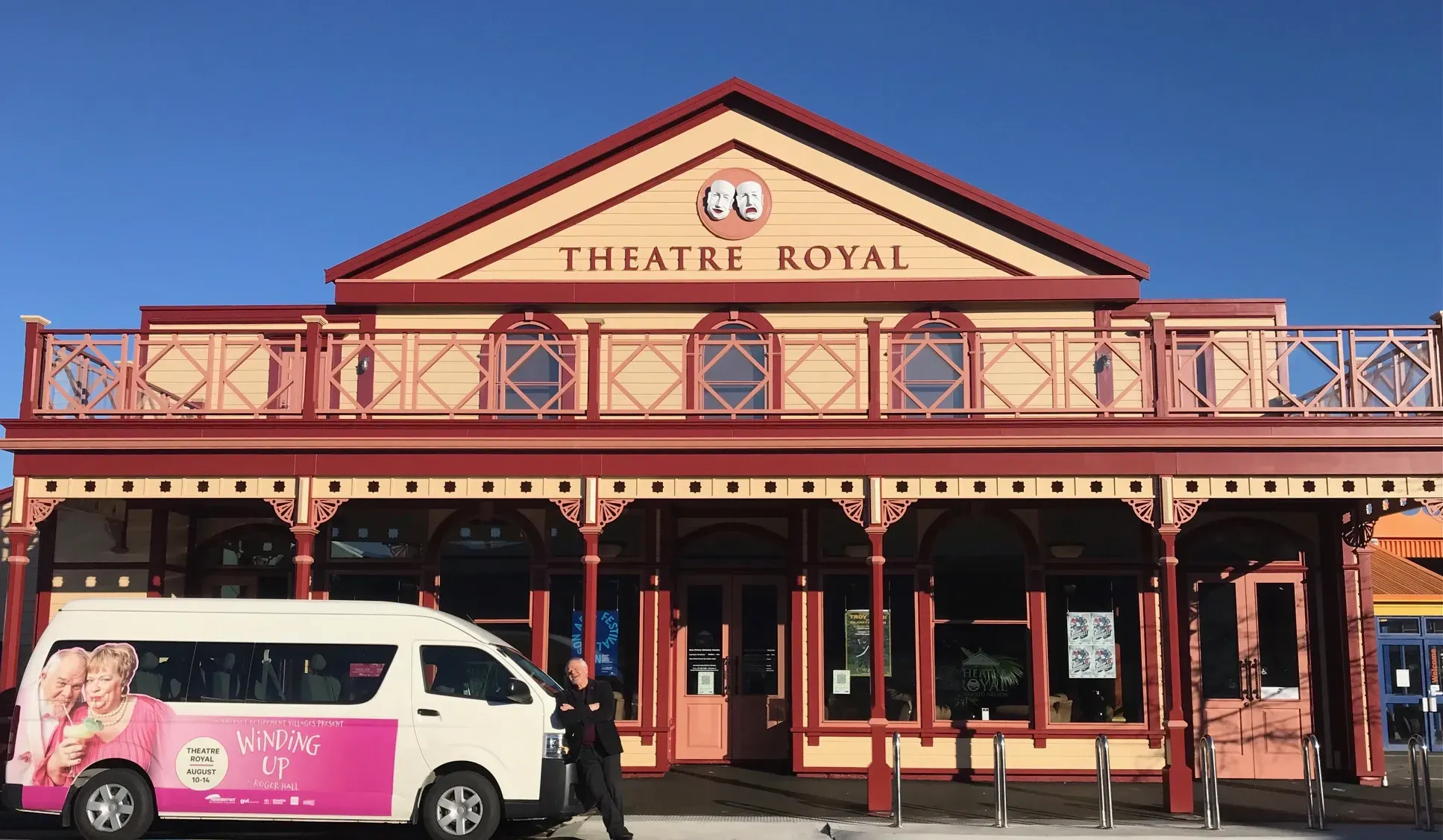Cultural Regeneration Fund Round Two Recipients Revealed
Written by
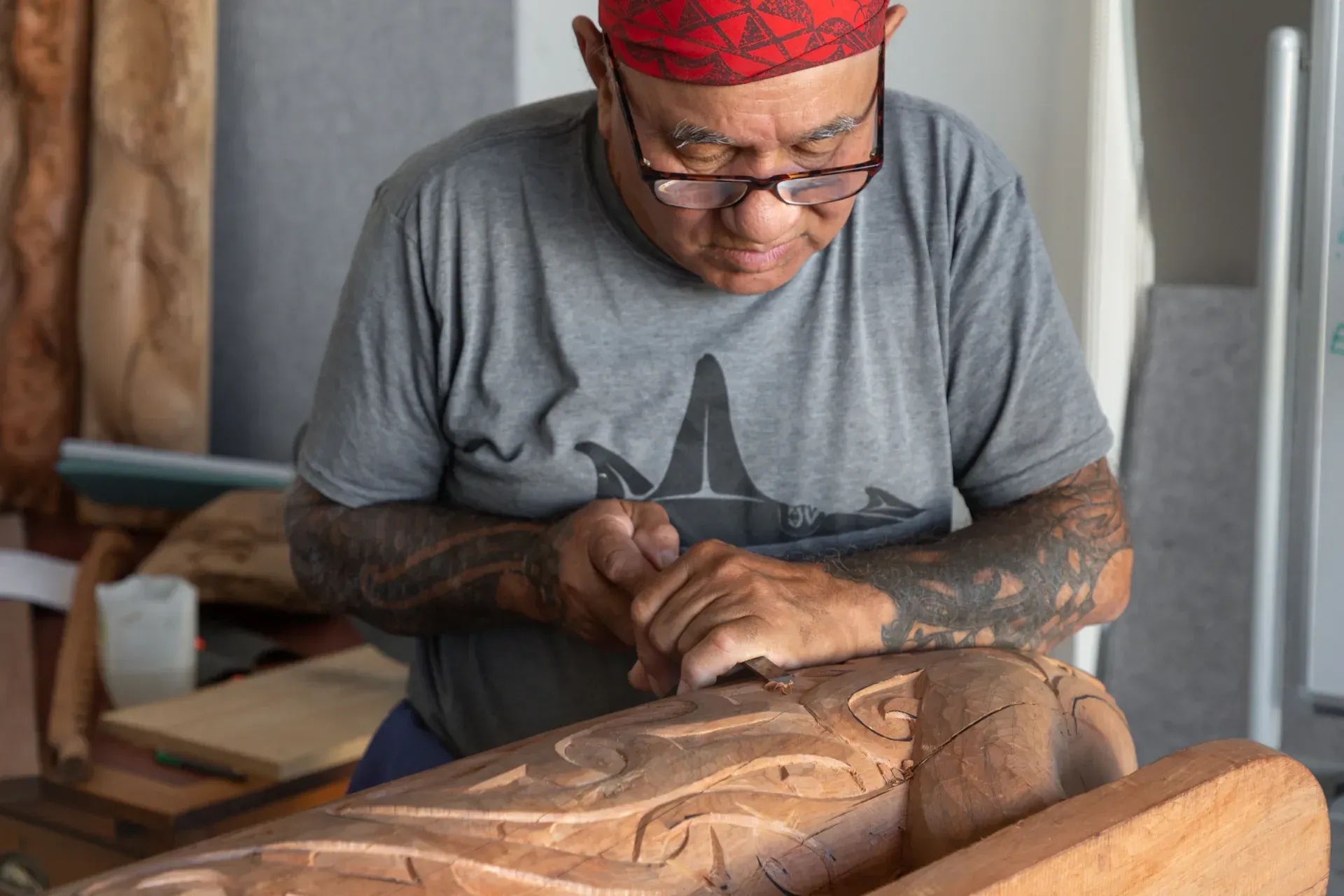
For 22 creative organisations, Christmas has come a little early.
$7.9 million has been awarded in the second round of the Cultural Regeneration Fund, administered by Manatū Taonga Ministry of Culture and Heritage (MCH) - subject to agreements being signed early 2023.
After just five initiatives were funded in the opening round, interest has been sky-high - with 224 full proposals received (a combined funding request total of $96.1m).
The good news for those unsuccessful to date is the lion's share of the $28m fund is still available. At the halfway stage of the four funding rounds, around $17m remains up for grabs.
MCH Chief Executive Laulu Mac Leauanae “these sector-led projects will help grow career opportunities, build capabilities across the sector and provide more access to arts, culture and heritage for people in Aotearoa New Zealand to enjoy.
“This Fund supports Aotearoa’s cultural infrastructure and takes a long-term view to invest in initiatives that will have a lasting impact for the cultural sector and our communities.”
Let’s be frank - getting the news when most in the arts have clocked off for the year is far from ideal. But as MCH Deputy Chief Executive Joe Fowler tells The Big Idea, “our recipients want to get on with their amazing projects, and that will mean talking to other organisations and people and sharing their news.
“We can't reasonably ask people to keep their news confidential for weeks.”
The same can be said for those who now need to shift their focus for the next round - waiting until the other side of New Years only reduces the time they have to reflect on the feedback they’ve been given.
Fowler continues "we felt privileged that the cultural sector shared their ideas and proposals with us, and for the thousands of people that let us know what they thought of the proposals in our open consultation. These voices gave us confidence that the initiatives we have funded have the backing and support that they will need to succeed.
“In this round we received over 8000 public feedback submissions, which is an outstanding level of interest in the future of our arts, culture and heritage sectors.”
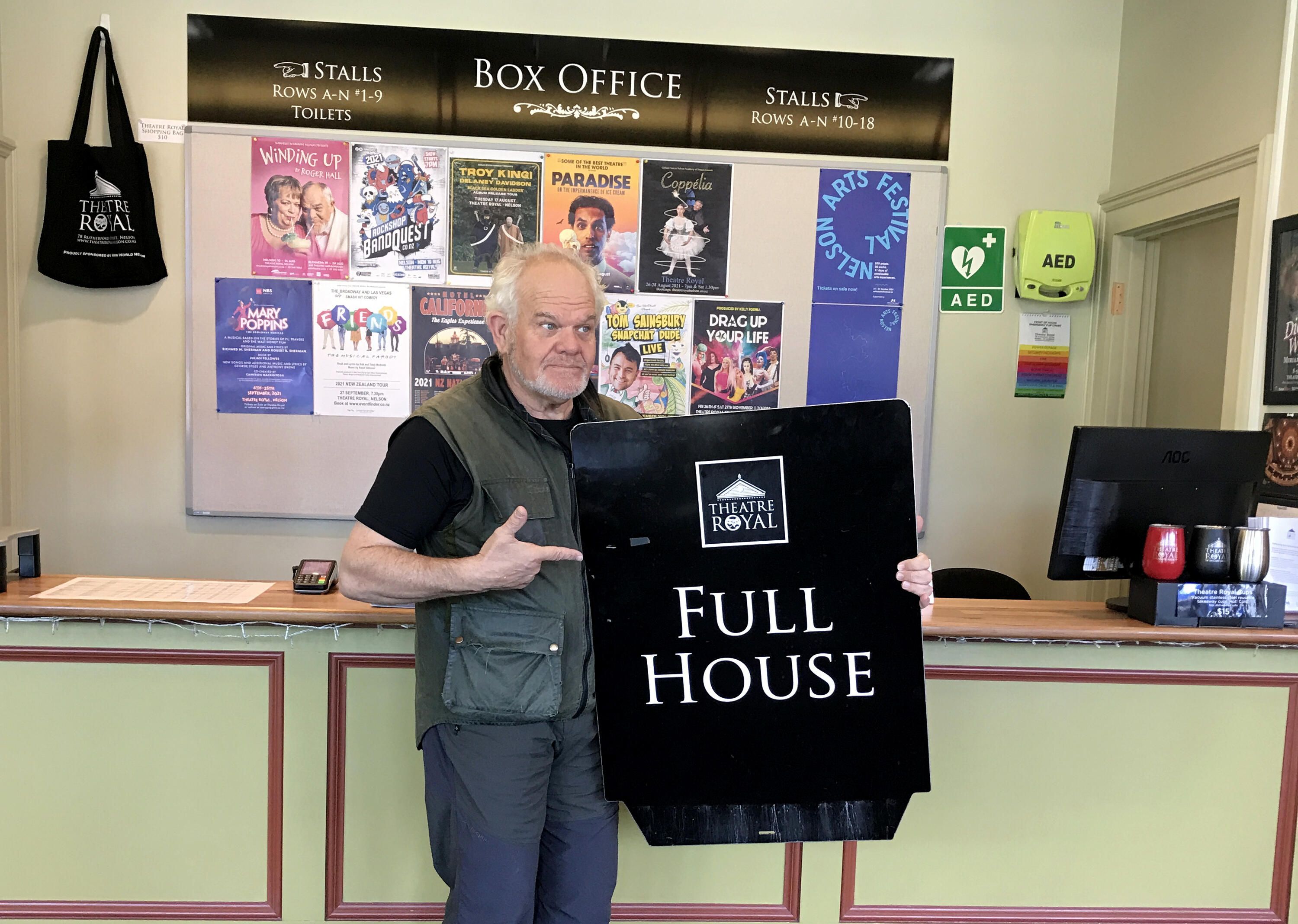
To understand what this means for creatives, you need only to see the reaction of Mark Hadlow (above), internationally admired performer of stage and screen and Artistic Director of one of the successful applicants, the Professional Theatre Trust.
His voice crackles with excitement as he tells The Big Idea how he can’t wait to bring his 45 years of experience to this new initiative.
“I want this profession to last, I want this profession to be for the next generations of actors coming through - that is what this is all about. It's about career pathways, and MCH have absolutely picked up the mantle of this. Any chance for us to rebuild regional professional theatre is great.”
Who got funded
Fowler explains the latest tranche of recipients represent a balanced mix of investments - all selected with helping break the shackles that the pandemic still represents for creatives.
“COVID-19 has a long tail - for individuals and our wider cultural sector. Few sectors were hit as hard as arts, culture and heritage, especially in performing arts, so it’s critical we invest now in the people and organisations so that they can continue to bring joy to the lives of New Zealanders.
“The investments we’re making are balanced across national and significant regional initiatives reaching Māori, Pacific, and disabled communities across performing arts, visual arts, literature, the safeguarding of Mātauranga Māori and the Galleries Libraries Archives Museums Iwi Records (GLAMIR) sector.”
Of the 22 organisations given the green light, top dollar went to one of the cornerstones of the Aotearoa screen sector - the New Zealand Film Festival Trust. It’s been granted up to $850,000 to expand the Festival into Northland and Gisborne, reinstate its schools programme in Auckland and Wellington, as well as adding New Plymouth, Dunedin, and Nelson.
Massey University also received a sizable thumbs up, funded up to $780,000 to develop research and a tool to measure the impact of live performance on wellbeing, directly addressing one of the fund's five outcomes.
One such key outcome is improved safeguarding of Mātauranga Māori and support of Toi Māori - which has helped deliver the Ruawhetū Charitable Trust up to $498,600 to establish Te Wānanga Whakairo o Ruawhetū, a training programme for aspiring carvers in partnership with iwi.
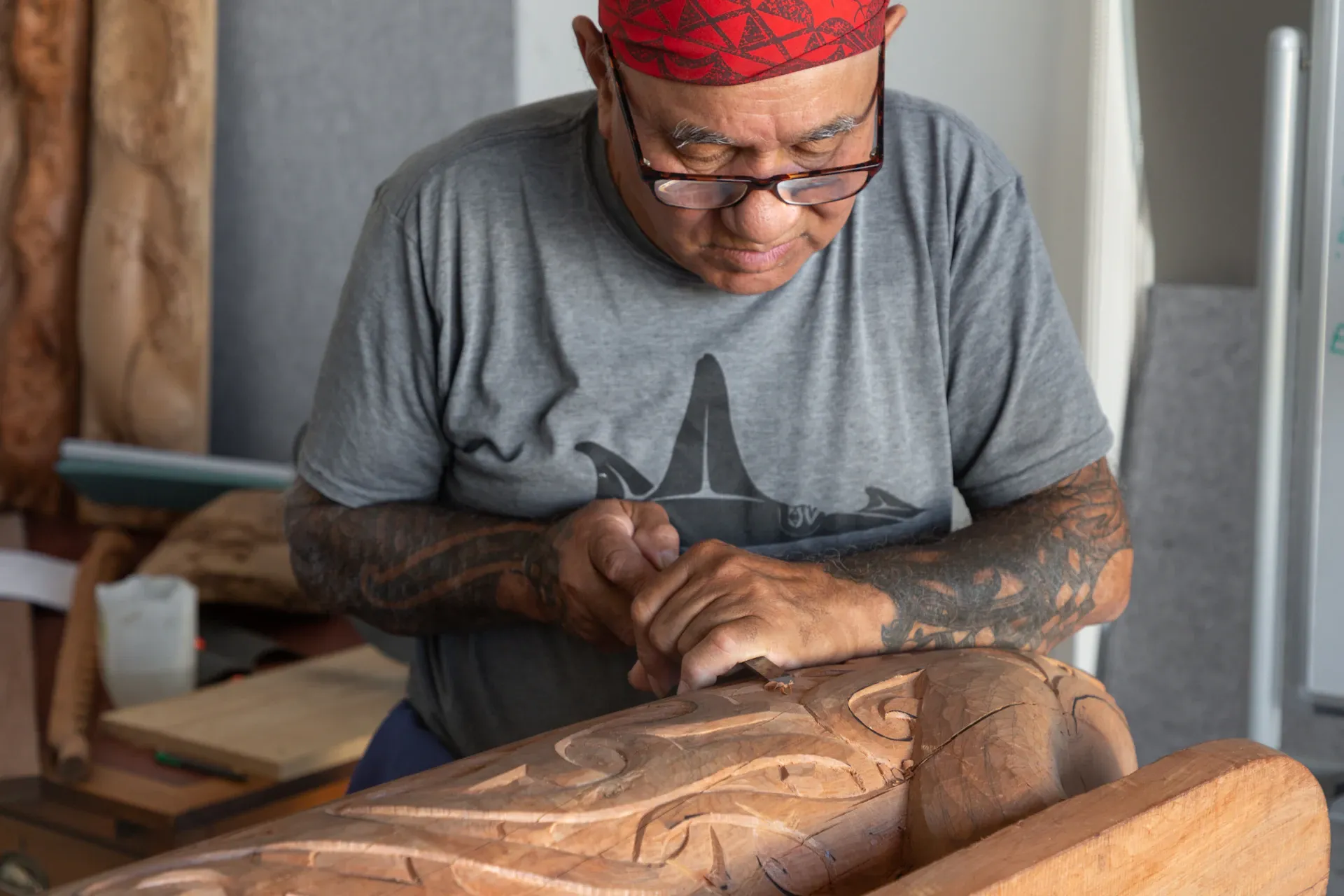
Tohunga Whakairo James Rickard. Photo: Supplied.
Ruawhetū Chairman Karl Johnstone told The Big Idea the funding is a huge moment for them to accelerate its growth and throw their offering wider.
“For us, it's a really great endorsement of the direction that we've taken with the charitable trust. The funding and the alignment particularly to the Mātauranga Māori objectives reaffirm the critical nature of the intentions of the trust.
“While it's a carving school, its focus is not only around maintenance and perpetuation of the art of carving but for the survival of whare or wharenui - because without carvers and the alignment of kaupapa or learning processes to iwi objectives, you can't meet that objective.
“In the 1920s when sir Āpirana Ngata (former Minister for Māori Development) set up the first Māori Arts and Craft Act, he said ‘wharenui are the pillars of our identity’ - it’s about seeing beyond the tangible, the physical, the material nature of carving into how it actually builds and strengthens the identity of communities."
Access to the arts is another of the important pillars in the funding decision process - which has seen Audio Described Aotearoa approved for up to $150,510 to train 12 Māori and Pacific audio describers, in collaboration with 12 consultants.
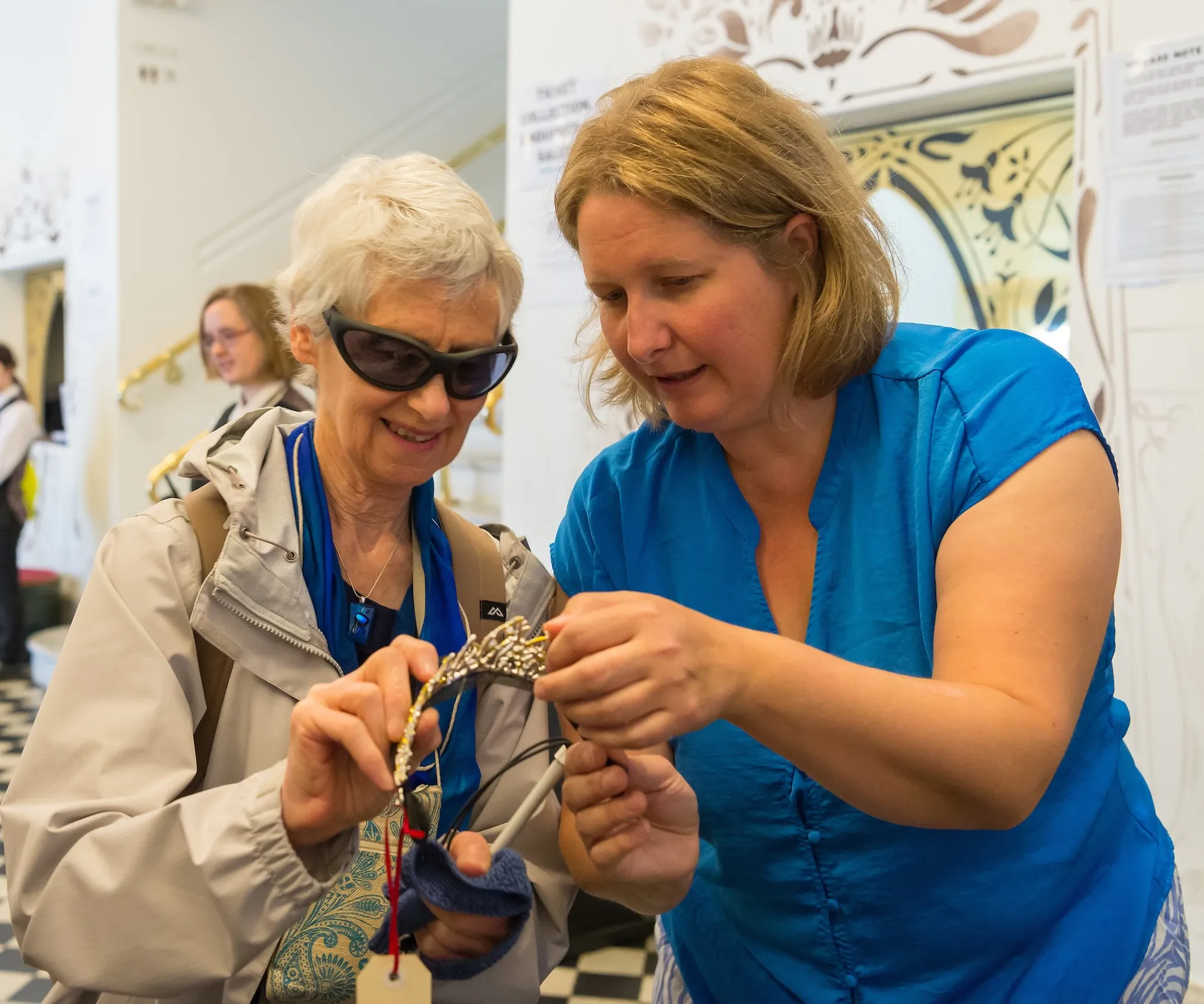
Royal New Zealand Ballet Nutcracker Audio Described Touch Tour and Performance.Photo: Stephen A’Court.
Co-Director Nicola Owen told The Big Idea “blind, deafblind and low vision audiences in Aotearoa have been enjoying live audio description since 2011 but, until now, have had limited opportunity to experience audio description in Te Reo Māori or of Māori and Pacific cultural events.
“This funding means that Audio Described Aotearoa can train both audio describers and blind consultants from Māori and Pacific communities to share the unique culture of our country with audiences for whom this has previously been largely inaccessible.
“We hope to work closely with Māori and Pacific festivals and arts events to help them reach this new audience. We also look forward to the community having more of a say in choosing the shows they want to attend as a way of promoting universal accessibility.”
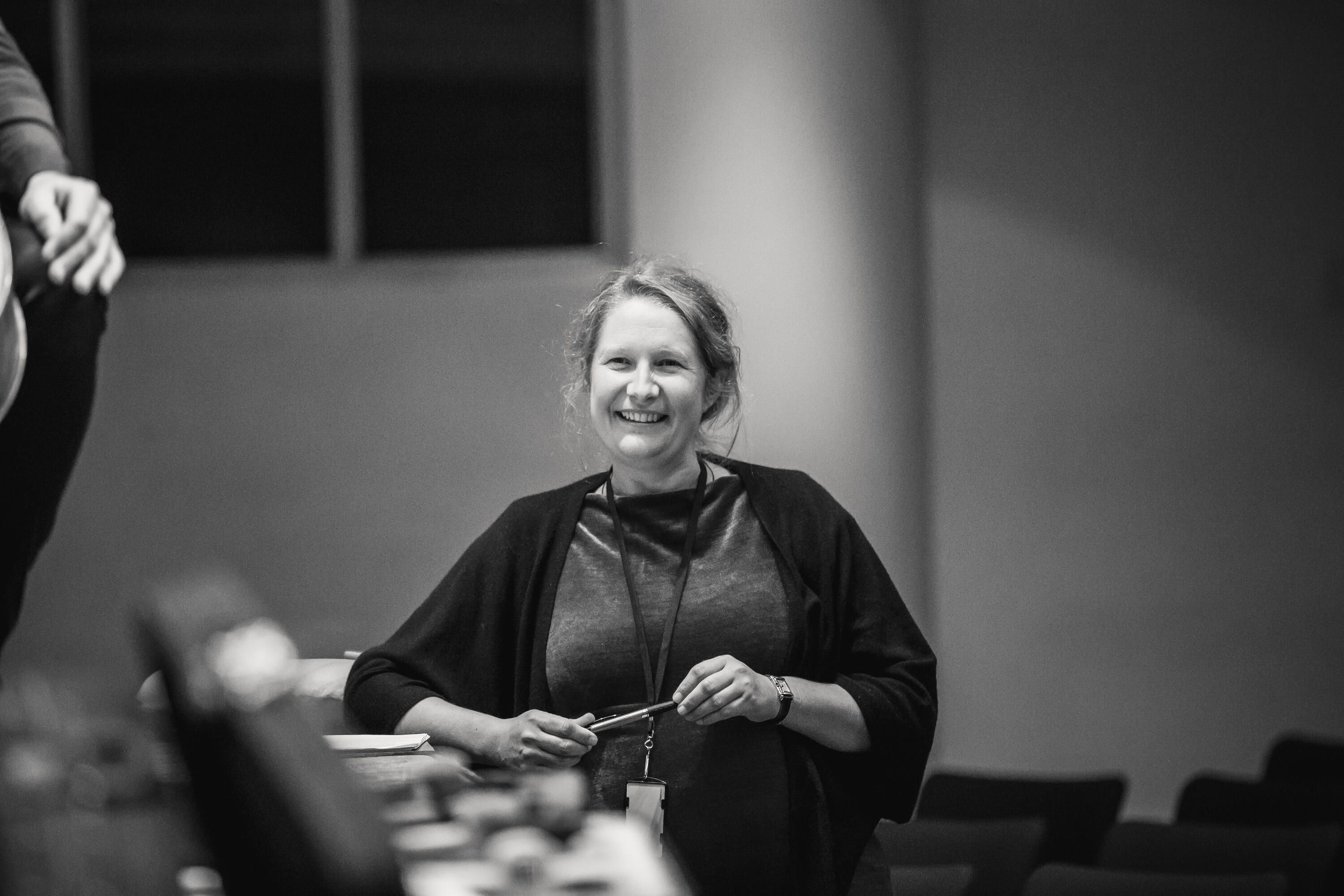
Nicola Owen. Photo: Chamber Music NZ.
The Big Idea Te Aria Nui Charitable Trust is another recipient - with up to $560,000 to provide a service many in the community have highlighted as a pressing need that provides both improved sustainability and resilience for the sector, as well as increased job and skill development opportunities.
It will involve upgrading and developing further resources and e-learning - and to continue and extend our mentorship and career development work on a national basis, currently being offered to Auckland creatives via Toipoto.
Chairperson Tina Symmans states “we’re thrilled to be able to put together this important kaupapa for the creative community. The results from our audience survey earlier this year illustrated clearly that creatives want more support in building and fostering sustainable careers.
“We have loved working with artists in our Toipoto mentoring programme and can’t wait to rip into this mahi in 2023.”
The New Zealand Choral Federation have been supported to the tune of $570,000, to deliver training and resources for teachers for group singing for both primary/intermediate children and 18-25 year-olds.
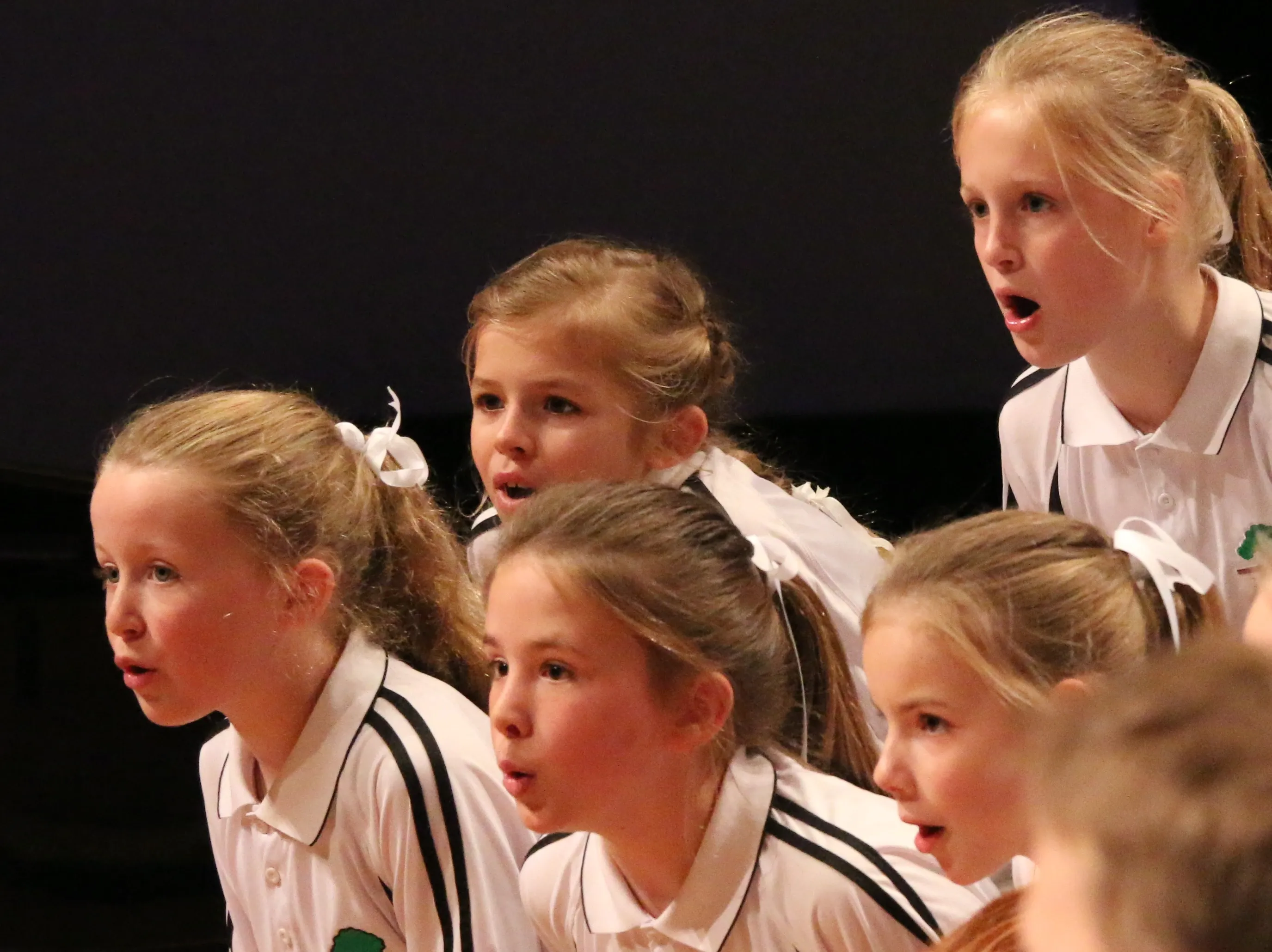
Bayfield School Choir at The Kids Sing. Photo: Supplied.
Chief Executive Christine Argyle told The Big Idea “this MCH funding will help us to get more children singing, and to keep them singing after they leave school.
“With few music specialists in primary schools, our youngest tamariki are missing out on improved educational outcomes through participation in music, as well as the considerable wellbeing benefits of group singing. We believe it’s vital to improve access to music for primary aged children, and the simplest, most cost-effective and equitable way to do this is through singing - everyone has a voice!
“The MCH Regeneration funding will enable us to provide resources and mentoring to inspire and upskill the music leaders who are working with our tamariki, and to provide pathways for young school leavers to continue their passion for singing into adulthood.
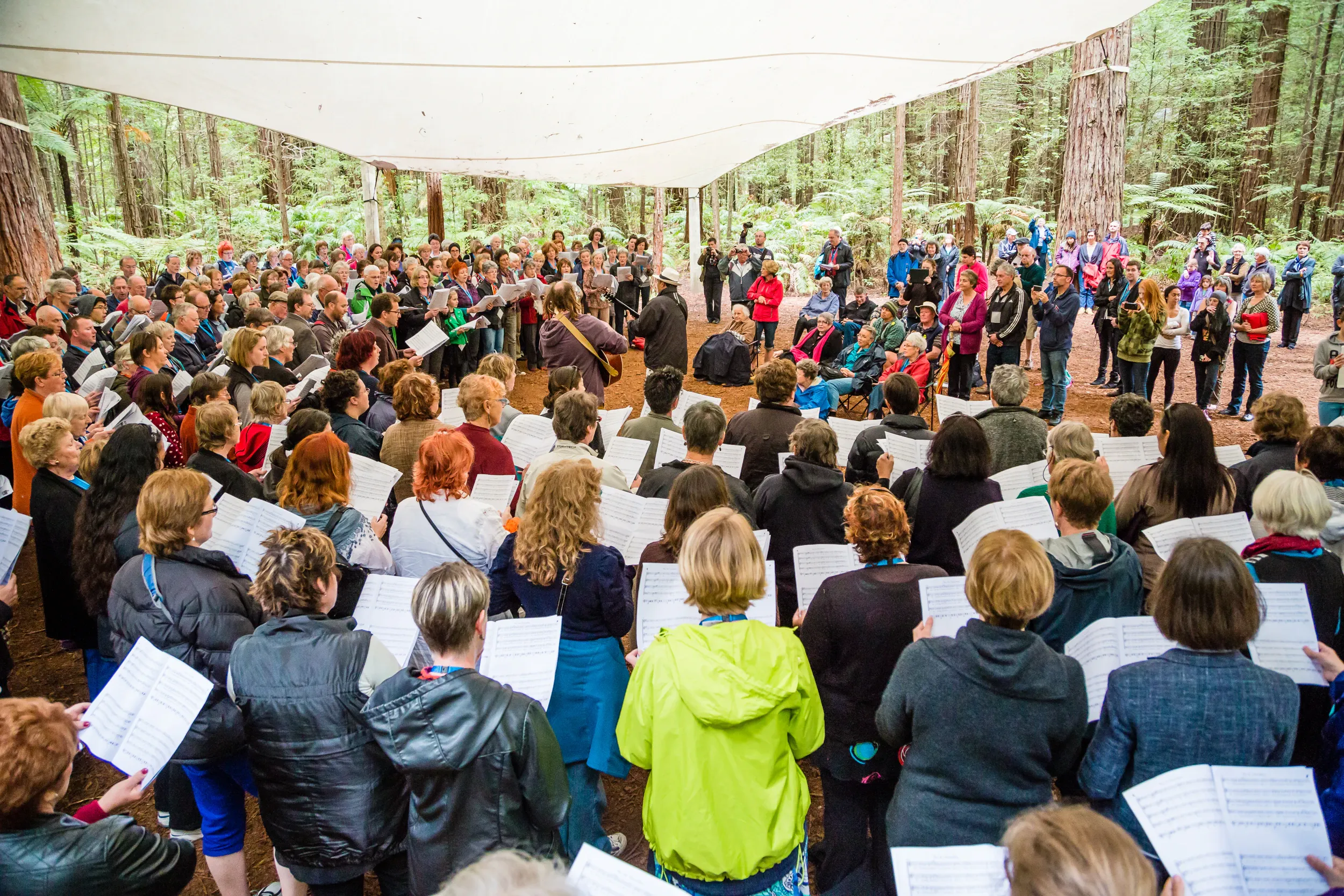
Forest Sing with Julian Raphael & Rim D Paul at Sing Aotearoa. Photo: Supplied.
“Group singing has been hit hard during the pandemic, and an activity that was internationally recognised as beneficial to mental and physical health suddenly became a high-risk activity. Our ‘Singing for Lifelong Wellbeing’ initiative aims to ignite and help sustain a lifelong passion for music in our young people, and will thereby contribute to the regeneration of the choral sector after the setbacks of COVID.”
The pain felt by the performing arts for almost three years now is well documented - something that’s not lost on Hadlow.
“I'm in tears once a week when I hear someone has stopped walking the boards. Nothing compares to the three dimensions of live theatre - not CGI, nothing. There’s an enormous difference between looking at something on your device and seeing professionals on stage, doing something that is just absolutely and utterly mind boggling, emotionally involving an audience.
“You can't replace it and it's not going to be replaced. Our only chance is through funding like this which is a huge shot in the arm.”
The Professional Theatre Trust’s boost of $174,710 to establish a professional theatre company in Nelson is a much needed tonic.
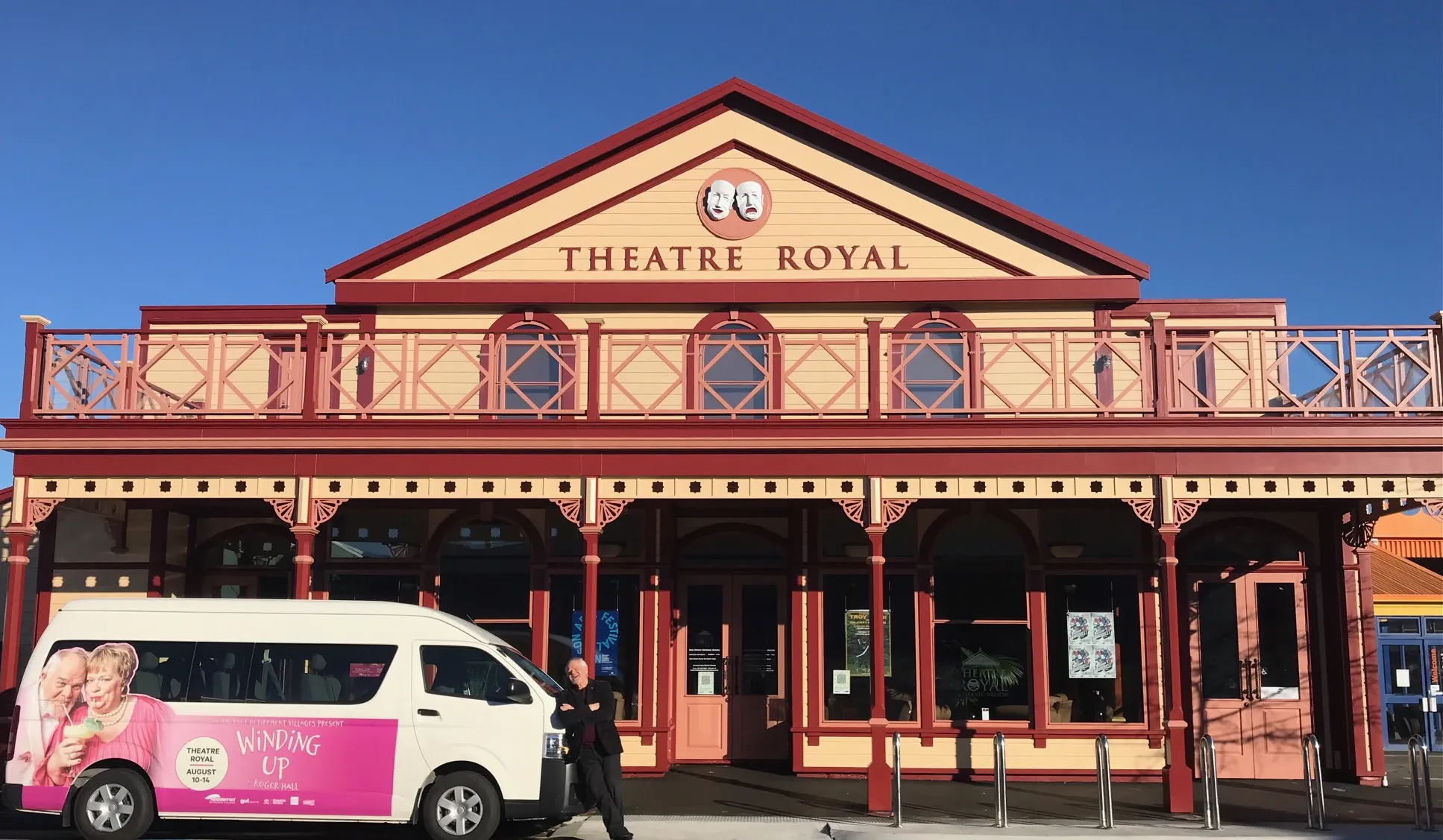
Hadlow enthuses “there are so many friends of mine who live in Nelson that work everywhere else but in their hometown. We've got this fabulous facility - the Theatre Royal (pictured above) - a 340 seat, perfect venue but there's not currently real career paths for people to come out of organisations like youth theatre to go into professional productions in their hometown.
“This gives us the opportunity to put our feet firmly on the ground - to really engage locally with our community and expose people to professional theatre who don't normally go to it.
“I can't tell you how excited I am.”
What happens next
For those who have missed out in the first two rounds - or have yet to turn their Expression of Interest into a fully fledged proposal - there are still two more rounds (and around $17m) to make your case.
Proposals for round three and four need to be submitted between 1-24 February 2023, with the third and fourth round recipients due to be revealed in March and May respectively. There will no doubt be public feedback windows before each round, given their popularity to date.
The full list of successful initiatives for round two;
Aotearoa Community Wellbeing Trust: up to $226,750 to deliver circus skills-based programme in schools and set up weekly community practice sessions.
Ruawhetū Charitable Trust: up to $498,600 to establish Te Wānanga Whakairo o Ruawhetū a training programme for aspiring carvers, in partnership with iwi.
Kauwaka Limited: up to $300,000 to support the delivery of the Ngati Kahungunu Academy for Excellence in Language and Custom programme for 40 people in 2023-2024.
Donna Kerridge: up to $346,610 to deliver the Pōhuehue Project, an online rongoā Māori training portal and establish an online rongoā Māori reference library for enrolled learners.
Gisborne Museum of Art and History Trust: up to $325,000 to build engagement with and allow better access for iwi and hapu to taonga in order to tell their stories and provide access to researchers.
National Digital Forum Incorporated: up to $245,000 to deliver digital capability programmes across New Zealand's Galleries Libraries Archives Museums Iwi Records (GLAMIR) sector.
The Big Idea Te Aria Nui Charitable Trust: up to $560,000 to upgrade and further develop the existing resource of their website to provide better user experience, develop resources and e-learning, and to continue and extend the mentorship and career development programmes.
The Coalition for Books: up to $217,200 to extend the KETE website enabling the sector to sell New Zealand books as digital e-books, and audiobooks; and deliver training to publishers on marketing New Zealand e-books and audiobooks.
Audio Described Aotearoa Ltd: up to $150,510 to train 12 Māori and Pacific audio describers, in collaboration with 12 consultants.
New Zealand Choral Federation: up to $570,000 to deliver training and resources for teachers for group singing for primary/intermediate children and 18-25 year-olds.
Frank Management: up to $324,900 for the development of a podcasting studio in Auckland for practitioners in comedy, music, film & television, and theatre.
New Zealand Film Festival Trust: up to $850,000 to expand the Film Festival into additional centres (Northland and Gisborne), reinstate schools programme in Auckland and Wellington, and add New Plymouth, Dunedin, and Nelson.
The Professional Theatre Trust: up to $174,710 to establish a professional theatre company in Nelson.
Arts Murihiku: up to $448,800 to deliver an incubator programme for creatives in Southland.
Lake House Trust: up to $209,233 to expand learning and connection with new cultural ambassadors offset costs of services and spaces to allow disadvantaged communities to access them for free.
Fua Creative Ltd: up to $410,813 to deliver a 6-week workshop series in their artform to school students, free of charge, through 8 residencies for Pacific Artists in Marlborough.
Massive Company Trust: up to $423,845 to deliver theatre training for young people and teachers across regions with limited access to quality development.
Northland Museums Association Inc: up to $245,528 to deliver capability development across Northland's 44 paid and volunteer run heritage institutions for a period.
The New Zealand Portrait Gallery Trust: up to $72,000 to deliver the 2023 Kiingi Tuheitia Portraiture Awards and provide mentoring/support for rangitahi to lead and participate in the ceremony and tour to 4-6 venues across Aotearoa.
Massey University: up to $780,000 to develop research and a tool to measure the impact of live performance on wellbeing.
Christchurch Arts Centre: up to $196,000 to support a new venue for circus, comedy, music and associated performing dance including dance and cabaret in the Arts Centre in Ōtautahi.
Toi Ngāpuhi Ltd: up to $300,000 to support the recording and sharing of mātauranga toi whakairo.
